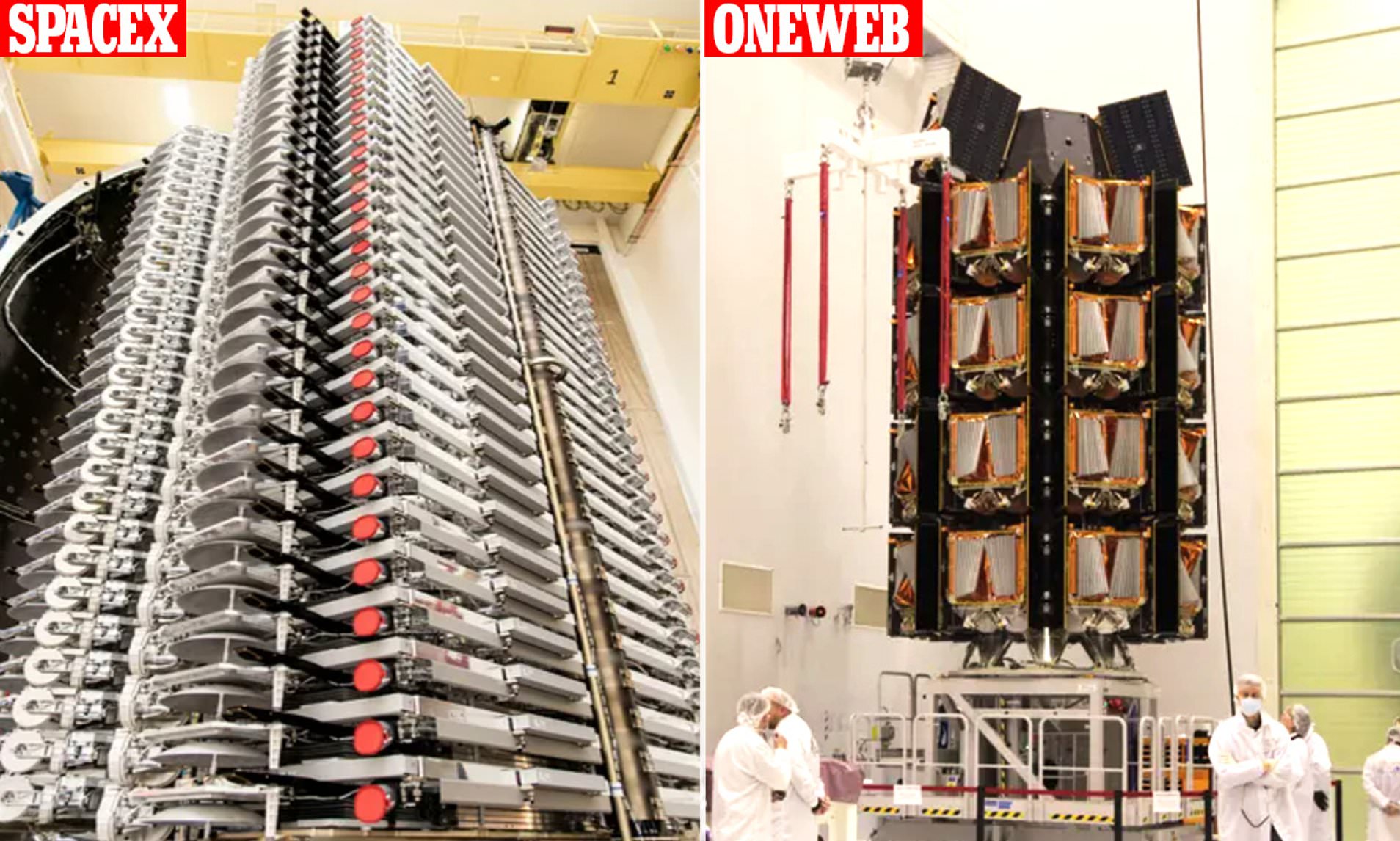In recent news, two satellites from the constellations of OneWeb and Starlink almost collided last weekend. However, both satellites managed to avoid the collision miraculously. This is the first known nearly-avoided collision between two rival companies who are looking to expand their new broadband-beaming networks in space.
On March 30th, OneWeb had received intel from the US Space Force’s 18th Space Control Squadron about a possible collision with the Starlink satellite. This is primarily due to the fact that OneWeb’s constellation operates in higher orbits around the Earth and normally passes through SpaceX’s mesh of Starlink satellites which have an orbit altitude of about 550 km.
Moreover, One Space Force alert had calculated a collision probability of 1.3 percent with both rival satellites coming as close as 190 feet which are said to be a dangerous range between satellites in the orbit.
If these satellites had collided, the resultant would be a high-level disaster with system failure and hundreds of pieces of debris crashing with the rest of the satellites.
As of now, there is no respective authority on either a national or global scale that would take action on these probable collisions. However, Space Force’s urgent alerts had sent OneWeb engineers to email SpaceX’s Starlink team to coordinate maneuvers that would put the two satellites at safer distances from one another.
Currently, SpaceX has roughly 1,370 Starlink satellites in orbit and is on track to launch thousands more, and aims to build a 12,000-satellite network of global broadband coverage. OneWeb, on the other hand, has launched 146 satellites and plans to send 650 more into orbit for a similar global network while operating in higher orbits around Earth. Moreover, Amazon has pledged to join the same race, planning to launch over 3,000 satellites in low-Earth orbit.

In a nutshell, all the major global companies want to beam broadband internet into Earth’s most rural regions to meet increasing demand from consumers and governments alike.





 iPhone Users Have Been Warned To Be Careful With WhatsApp Backups, iCloud Is More Secure
iPhone Users Have Been Warned To Be Careful With WhatsApp Backups, iCloud Is More Secure